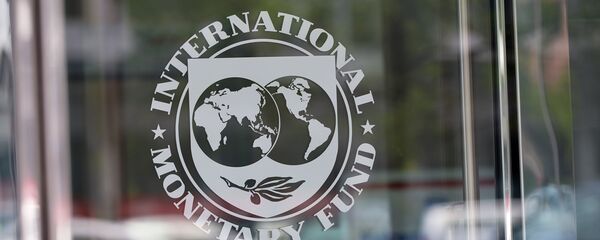MOSCOW (Sputnik) — Russia has undertaken a number of efforts to mitigate the outfall of its recent two-year recession, Western sanctions and the slump in oil prices. This included budget cuts, a tight monetary policy, purging the country's banking system of weaker players and initiating an import substitution program.
"These policies need to be supplemented with structural reforms that lift potential output and accelerate convergence towards per capita income levels of advanced economies. So far, the more competitive exchange rate has not ignited a robust response from non-traditional sectors of the economy and a new growth model that is less dependent on commodities has yet to emerge," the 2017 IMF Article IV mission to Russia said in a statement following its visit to Moscow.
The IMF pointed out that Russia had already privatized some state-owned companies and "purged weak banks from the financial system," though it was necessary to increase investment and productivity.
Russian authorities should also expand the number of preferential trade agreements signed with other states and consider implementing a pension reform which would include increasing the statutory retirement age.
Russia is emerging from a two-year recession that began amid collapsing commodity prices, including oil, as well as Western sanctions. In 2016, Russia's economy is estimated to have contracted by 0.5 percent after contracting almost 4 percent the previous year. The first three quarters saw negative growth rates before a slight GDP increase in the fourth quarter. The Economic Development Ministry's 2017 target scenario forecast is a GDP increase of 2 percent.


